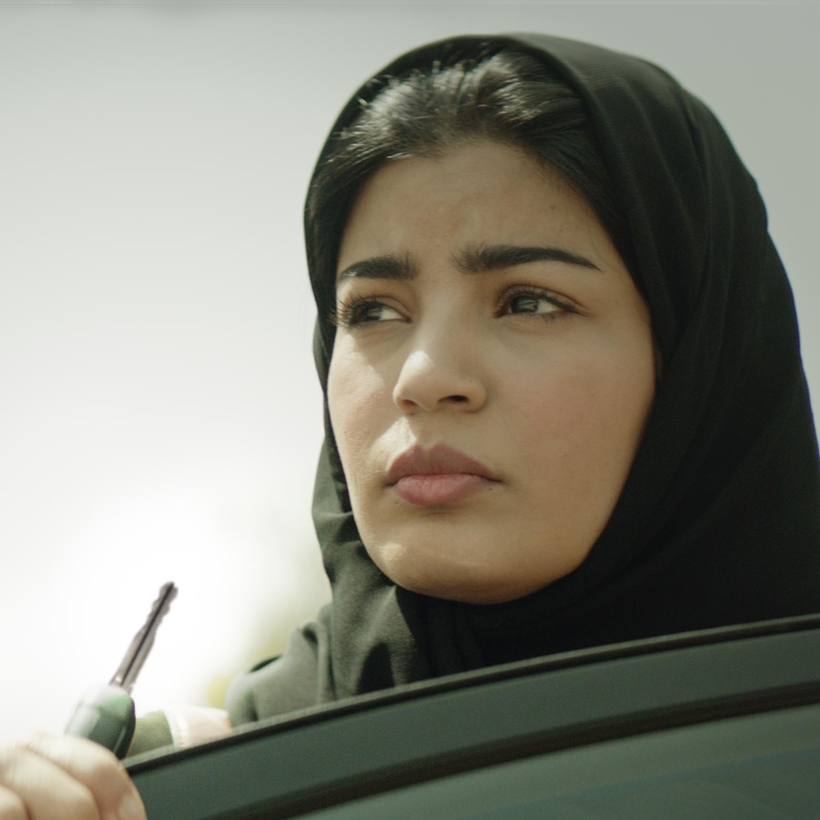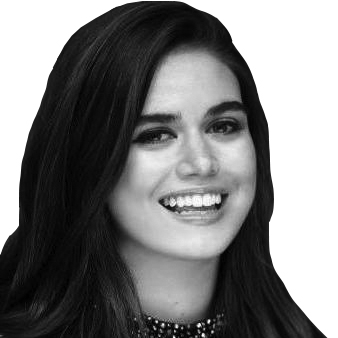Women in Saudi Arabia couldn’t drive, vote, or work with men when Haifaa Al Mansour became the country’s first female feature-length-film director upon the release of Wadjda (2012), the story of a 10-year-old girl determined to have her own bicycle. The film also marked Saudi Arabia’s first submission to the Oscars, picked up three awards at Venice, and earned Al Mansour a BAFTA nomination. Following the success of Wadjda, Al Mansour was plucked up by Hollywood and offered the opportunity to direct a biopic of Frankenstein author Mary Shelley starring Elle Fanning. While Al Mansour was surprised to be handed the Gothic period piece, she quickly struck on the similarities between the confines 19th-century society placed on the young and pioneering Shelley and those of present-day, ultra-conservative Saudi Arabia.
The 8th of 12 children, Al Mansour, 45, grew up between Riyadh and Al-Hasa, in eastern Saudi Arabia, with parents who did not speak English. The barriers filmmakers in her home country faced were notable—for more than 35 years, religious hard-liners had succeeded in keeping public cinemas shuttered, a regulation lifted just two years ago—and compounded by Al Mansour’s gender. This is, after all, a place where women are still typically segregated from men at restaurants and at work, and where even admission to the hospital requires permission from a male guardian.


